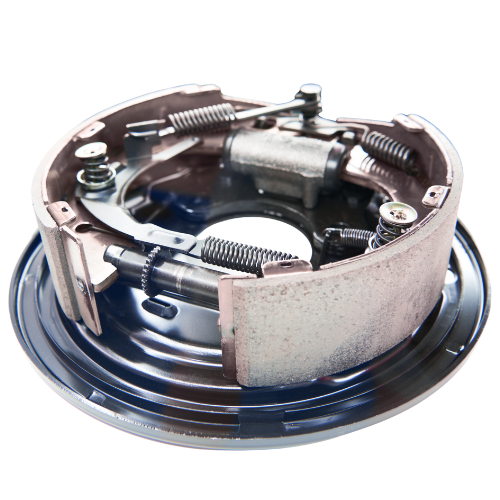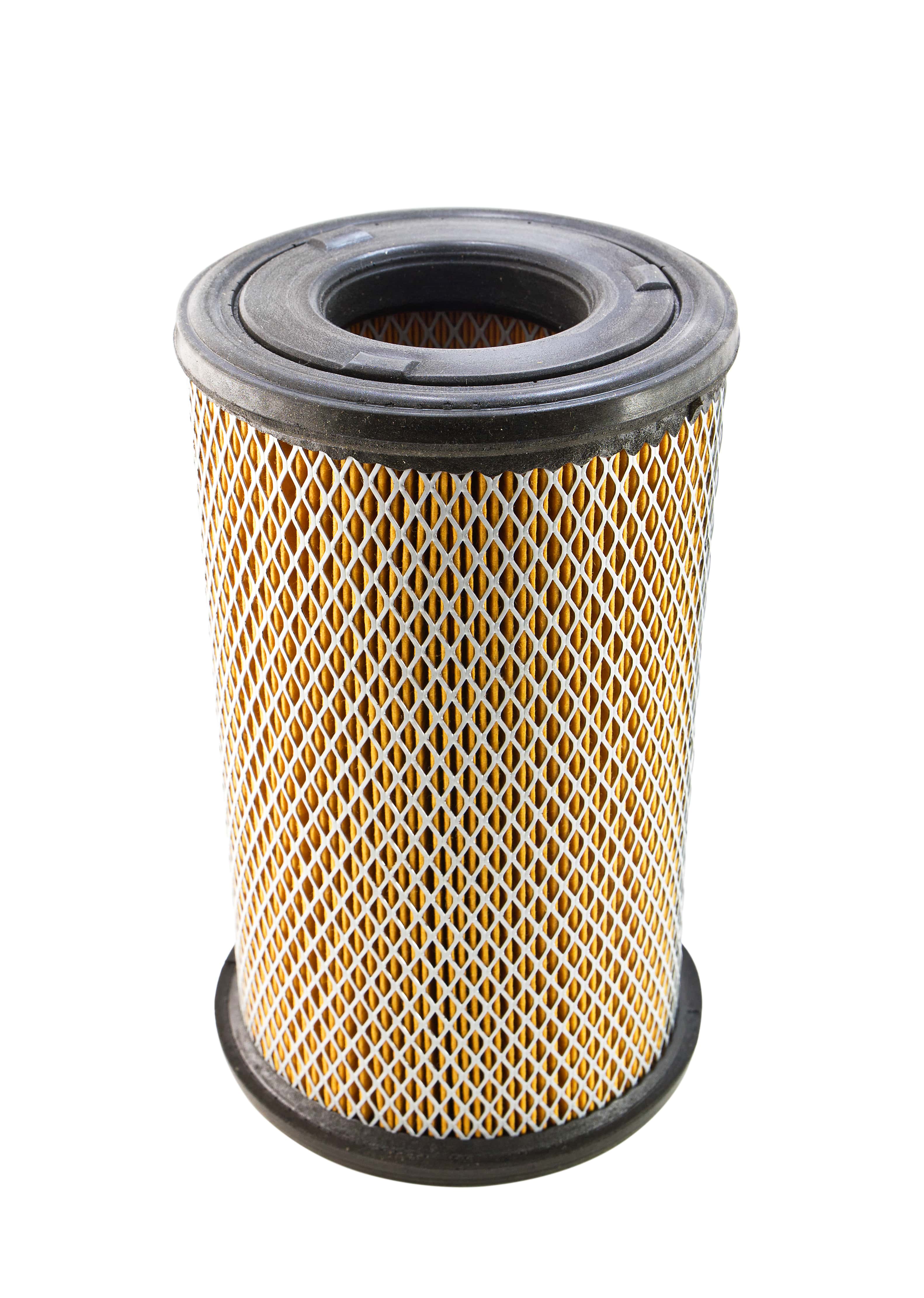Explore the four key components that make up a truck’s brake system—engineered to ensure safe, reliable, and powerful stopping performance on every road.

A truck’s performance and longevity are determined not only by its engine but by a series of systems working in harmony, each protected by a critical, often-overlooked component: the filter. Filters are the first line of defense, tirelessly working to protect vital systems from contaminants. The importance of these small but mighty components is a cornerstone of effective maintenance in the trucking industry. This guide explores the vital role of the various filters in your truck, discussing how their function is as critical to the vehicle’s longevity as the air brakes are to its safety. Just as a driver relies on a responsive braking system, which includes the brake chambers and brake calipers, the truck relies on its filtration system for peak performance.
Air Filters:
An engine needs clean air to operate efficiently. The air filter’s primary job is to prevent abrasive particles such as dust, dirt, and sand from entering the engine’s combustion chamber. Without an effective filter, these particles can cause significant damage to the cylinders, pistons, and other internal components, leading to reduced engine life and costly repairs. A clogged filter restricts airflow, which can result in poor fuel economy, a noticeable loss of power, and an increase in harmful emissions. A functioning air filter automatically protects the engine without constant intervention, much like a reliable slack adjuster maintains correct brake adjustment without manual adjustment. Regularly checking the air filter and replacing it when it's dirty is a simple yet vital task that can prevent major engine issues down the road.
Fuel Filters
Fuel is rarely completely clean. It can contain rust, dirt, and other sediment from fuel tanks and delivery systems. The fuel filters act as a barrier, trapping these contaminants before they can reach the sensitive and expensive components of the fuel injection system. A clogged fuel filter can lead to a variety of performance problems, including rough idling, difficulty starting the engine, and a significant drop in power, especially under heavy load. The filter's job is to ensure that only clean fuel reaches the engine, protecting fuel injectors and pumps from abrasive wear. Regular fuel filters replacement is a small investment that guards against the high cost of a new fuel injection system. The consistency of fuel flow and its purity, ensured by the filter, is a testament to the fact that every part, no matter how small, has a crucial role to play, just as a brake line bender ensures the integrity of a brake line during a repair.
Oil Filters
As an engine runs, combustion by-products and tiny metal particles are created. The oil filters' job is to trap these contaminants, ensuring that the engine oil remains as clean as possible. It works in conjunction with the oil to remove sludge, carbon deposits, and other debris that can circulate and cause wear on critical parts. A neglected oil filter can become so clogged that it enters bypass mode, circulating unfiltered, dirty oil through the engine. This can dramatically accelerate wear and tear, leading to premature engine failure. The choice of filter and engine oil is especially important for a diesel engine, as they operate under higher pressure and temperatures. A high-quality oil filter provides superior protection, much like using heavy duty brake calipers offers superior stopping power and durability. Regular oil and oil filters changes are arguably the most important maintenance task a truck can undergo.
Coolant Filters
While less common on passenger vehicles, coolant filters are a standard component on many heavy-duty trucks. Their role is to protect the cooling system by filtering out rust, scale, and other debris that can accumulate over time. A clean cooling system is essential for preventing the diesel truck from overheating, which can cause catastrophic damage. Some coolant filters are also designed to release chemical additives that maintain the proper pH balance of the coolant, further protecting the system's components. A well-maintained cooling system prevents thermal stress on the engine parts, which is vital for sustained performance on long hauls. The reliability of these parts is crucial, and a small, functional component like a coolant filter is just as vital as a robust brake chamber is for safety.

For any trucking business, proactive maintenance is not just a best practice—it's a financial necessity. Neglecting simple tasks like filter replacement can lead to cascading failures that result in costly downtime and expensive repairs. When a driver is on the road, their vehicle's reliability directly impacts the business's bottom line. A thorough and regular maintenance schedule helps to prevent these issues.
It's crucial for fleet management to source the highest quality truck parts available. The performance of your truck relies on the seamless interaction of all its engine parts. From the smallest bolt to the most complex system, every component must be reliable. Using subpar truck parts can lead to early failure and compromise the safety and efficiency of your entire fleet. This is particularly true for heavy-duty trucks that endure high-stress operations day in and day out. Investing in quality from the beginning pays dividends in the long run by reducing unexpected breakdowns.
When it comes to sourcing truck parts, reliability is the primary consideration. Whether you are a small business owner or a professional in fleet management, working with a trusted supplier is essential. A reputable supplier will not only provide you with a wide range of filters, but also offer expert advice on which parts are best suited for your specific diesel engine and operational needs. The right truck parts are the difference between a minor issue and a major breakdown. This is why many experienced professionals in the trucking industry prioritize quality above all else. From heavy duty truck parts to minor consumables, every purchase should be seen as an investment in the long-term health and profitability of your fleet. Fortunately, you can source high-quality heavy duty truck parts from GAPASA, a leading truck brake manufacturer and supplier.
While the core of this discussion is filtration, it's worth noting that a complete maintenance strategy includes all safety-critical systems. For example, every driver should understand the signs of a failing slack adjuster. An improperly adjusted slack adjuster of trucks can compromise braking effectiveness. Similarly, inspecting brake shoes for wear and damage is a basic safety check that can prevent catastrophic failure. A manual slack adjuster must be correctly set, just as an air filter must be replaced on time. The reliability of a semi truck slack adjuster is critical, and knowing how to measure the pushrod stroke is a key skill. If a brake chamber replacement is needed, always use quality parts from reputable truck brake calipers manufacturers.
Filters are the silent guardians of your truck's most vital systems, and their timely replacement is a cornerstone of responsible maintenance. By ensuring clean air, fuel, oil, and coolant, you are making a small investment to protect against major, costly repairs. However, this is only half the story. The health of a vehicle must be considered holistically. A comprehensive maintenance plan must include a regular check of all filters to ensure your diesel truck runs reliably and safely for every mile ahead. By prioritizing both proactive filtration and a thorough inspection of key components, you ensure your truck is ready for the demands of the road.